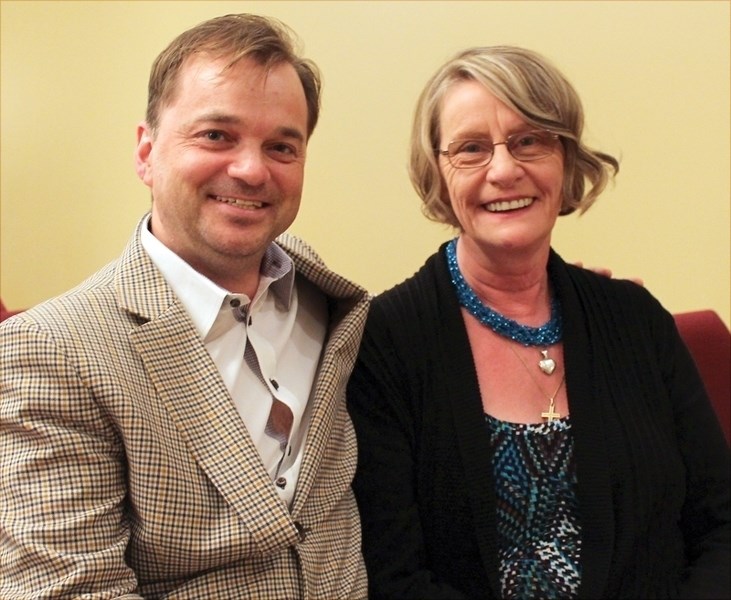Few people like talking about their own mortality, but a recent seminar on organ and tissue donation asked attendees to do just that.
Erik Williams, health promotion facilitator with Alberta Health Services, conducted the forum at the Prairie Sunset Funeral Home on May 22. Sylvia Flannigan, whose son became a donor after his death, joined Williams for the evening.
The pair talked about the positives that can come from tragedy, the importance of knowing the wishes of loved ones and the new Alberta organ and tissue donation registry.
“People are very giving and they want to see something good come out of a loss,” Williams said. “What donation really does is give a silver lining to that loss. When you lose a loved one nothing really changes, there’s nothing you can do, but knowing somebody’s been helped, it makes a difference and helps with the grieving process.”
Both Williams and Flannigan urged people to have a conversation about becoming an organ and tissue donor, now, when times are good and not leaving it to loved ones during a stressful situation.
“One of the best things to do is do it when things are fine. It can be really difficult to do when you’re faced with tragedy or loss in a hospital,” Williams said. “You have the conversation in advance. You want to do is sit down and explore your wishes should something happen to you.”
There’s information on organ and tissue donation available on the AHS website and Williams suggests doing a bit of research before talking about the issue, so you’re aware of the process and the outcomes.
“It’s important to have the conversation,” Flannigan said. “It doesn’t matter how much we think we want something, if our family doesn’t know it wont be done.
“When that crisis hits you’re just trying to comprehend, trying to exist and survive and if somebody asked the question, it’s not a shock, it’s like you go into ‘wait a minute, they wanted that.’ If decisions have to be made quickly it’s much, much easier if the family is aware of your intentions.”
It’s a conversation Flannigan didn’t have with her son before he took his own life at the age of 16, but the subsequent donation of his tissues has helped with her grieving.
“I honestly don’t know where I’d be right now if I didn’t have this,” she said. “I suffered a terrible loss but I’ve also been given the opportunity to make that loss a gift. Lee helped 19 people. His legacy lives on in 19 other people.”
Compared to rates in other developed nations, Alberta’s organ and tissue donation levels are low. About 150,000 people are currently listed on the province-wide registry, which works about to be around one in 24 people.
Williams suggests that should you choose to become an organ donor, that you register and also indicate your wishes on the back of your healthcare card.
“It would be great if people would consider signing their intent on the donor registry, because healthcare professionals do access that information if somebody passes away, and if we know what the person wanted, it makes it easier for us to talk to the family,” Williams said.
If you’re not listed, you can still become a donor in a number of ways. The province has two donation teams, one based in Edmonton and the other in Calgary.
Those teams will receive referrals from potential candidates that have been identified by doctors and nurses in hospitals, the medical examiner when death occurs outside of a hospital, or directly from family members.
One person choosing to donate their organs and tissues has the potential to help 83 people.
“Lee’s last tendon was transplanted four-and-a-half years after he passed away,” Flannigan said. “That brought me joy, people have a problem when I say joy but it really does bring be joy.”



